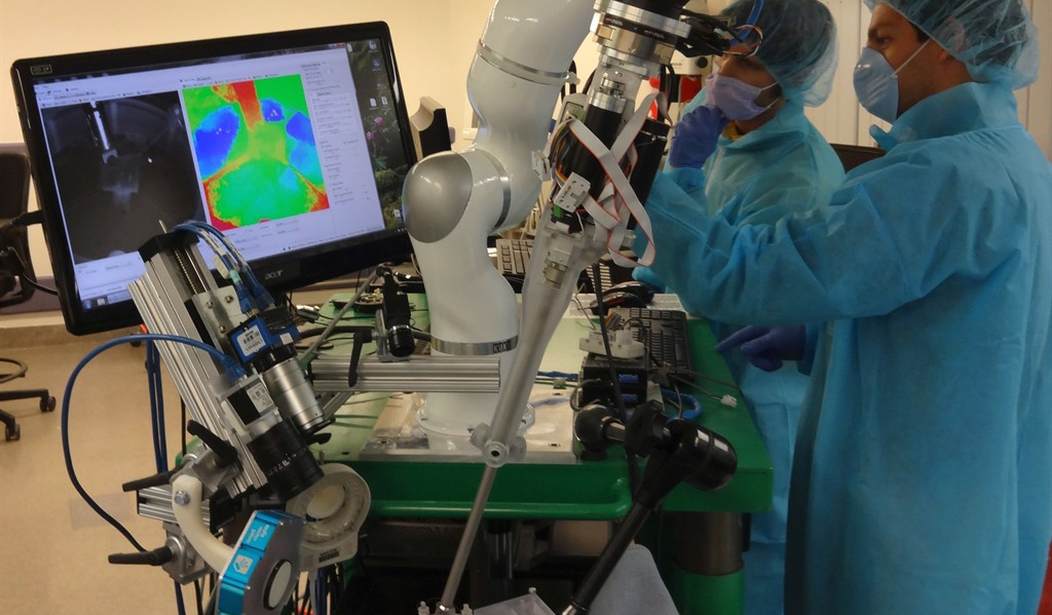With the advent of Artificial Intelligence and advanced robotics, it’s obvious that a lot of people are going to be losing their jobs. The technology is already displacing warehouse workers at companies like Amazon and driverless cars used by Waymo are putting pressure on taxi companies and ride-sharing outfits such as Uber. But what about surgeons? Could they really be replaced? Well, we’re not quite there yet, but there are already robots performing surgery in a number of hospitals. At the University Hospital of Wales, surgeons are operating on patients from a different room with a robot with four “hands” doing the actual cutting and stitching. That’s not creepy at all, right? (The Guardian)
Neil Thomas wished he could have been awake during the operation to remove a 6cm cancerous tumour from his colon. He was one of the first people to go under the scalpel of University Hospital of Wales’s new robotic systems in June 2022. And, as the founder of a software company, the technology interested him.
Thomas’s surgeon, James Ansell, would once have stooped over his patient’s body to perform the operation. Instead, he stood behind a console on another side of the theatre wearing 3D glasses. His hands grasped two joysticks, which controlled the four robotic arms that huddled around Thomas’s unconscious body.
“My colleague said to me the other day that this feels like cheating,” Ansell says.
The robot they are using in Wales isn’t a true AI system. The doctors can’t be “replaced” because they are still operating the robot’s limbs and observing the surgery using cameras that allow them to closely view the work. One of the doctors said that he finds the process to be far less stressful than traditional surgery because he can remain seated and comfortable while working on the patient.
But the surgeon’s role may be changing significantly in the near future, or potentially be eliminated entirely. A new robot called the Smart Tissue Autonomous Robot (Star) is on the way. Star has already been used to autonomously perform surgery on pigs in laboratory experiments and the doctors who supervised it said it performed better than a human surgeon performing the same procedure.
At least for now, there still has to be a surgeon present to prepare an operational plan and supervise the robot. The developers speak of “levels of autonomy” in terms of how many decisions that robot can make on its own during the procedure without waiting for confirmation from a doctor. But if they’re this close to being autonomous and being given vast libraries of medical information to draw on, how much longer will it be?
If I needed surgery today and the option was offered, I suppose I would consider letting them use one of the remotely controlled robots. From all I’ve read on the subject, they seem to be pretty reliable. But a fully autonomous robot? No thanks. Call me old fashioned, but I don’t want a machine taking my life in its hands while I’m knocked out under anesthesia. What sort of decisions might it make if it runs into something unexpected?
I’m also curious about what this will do to the cost of hospital care. Having surgery can already run up an astronomical bill for patients. These robots can cost tens of millions of dollars. That money has to be made up somewhere. It just feels like we’re rushing into all of this too rapidly without fully understanding the potential consequences. But it’s apparently too late now. The AI genie is already out of the bottle.








Join the conversation as a VIP Member